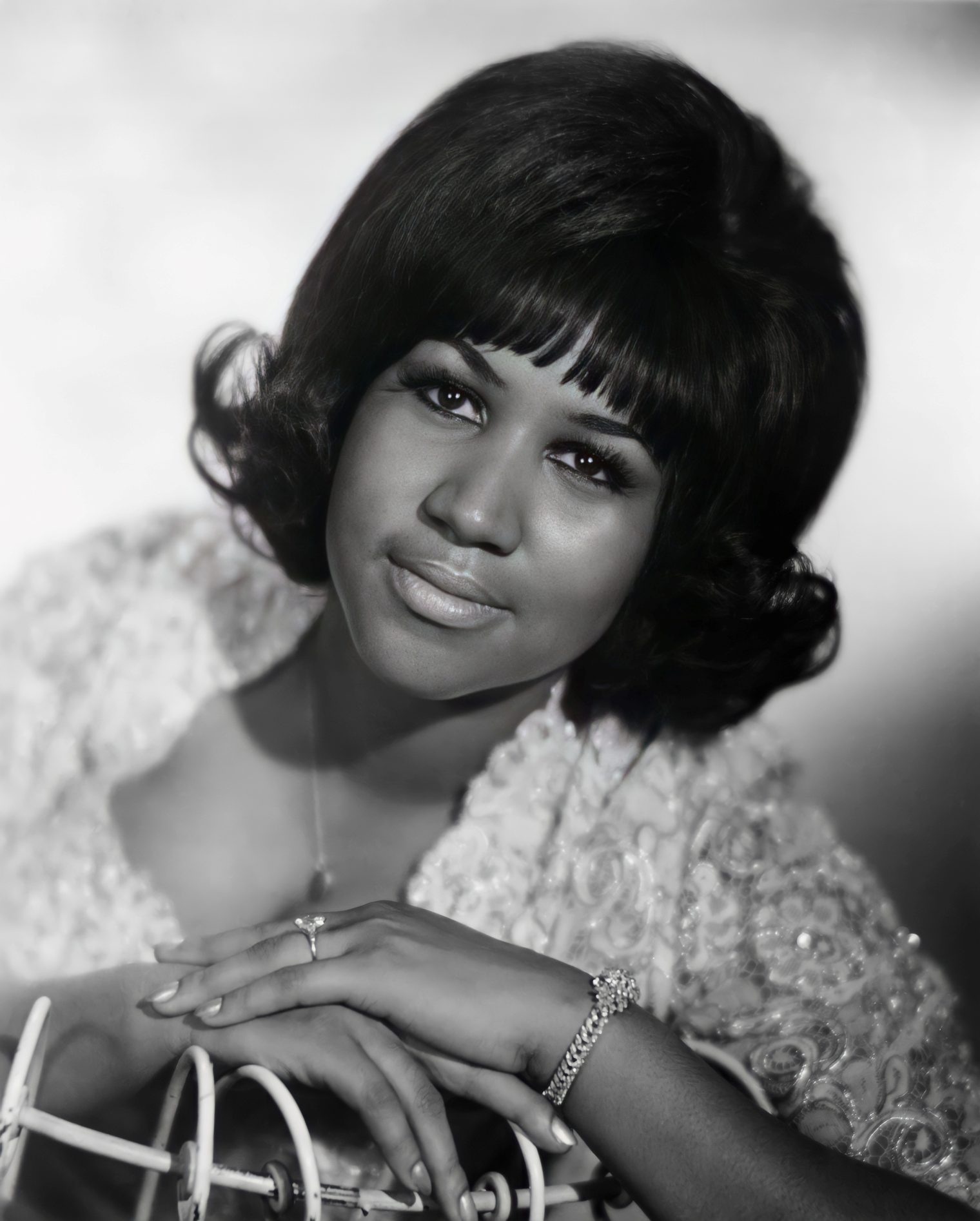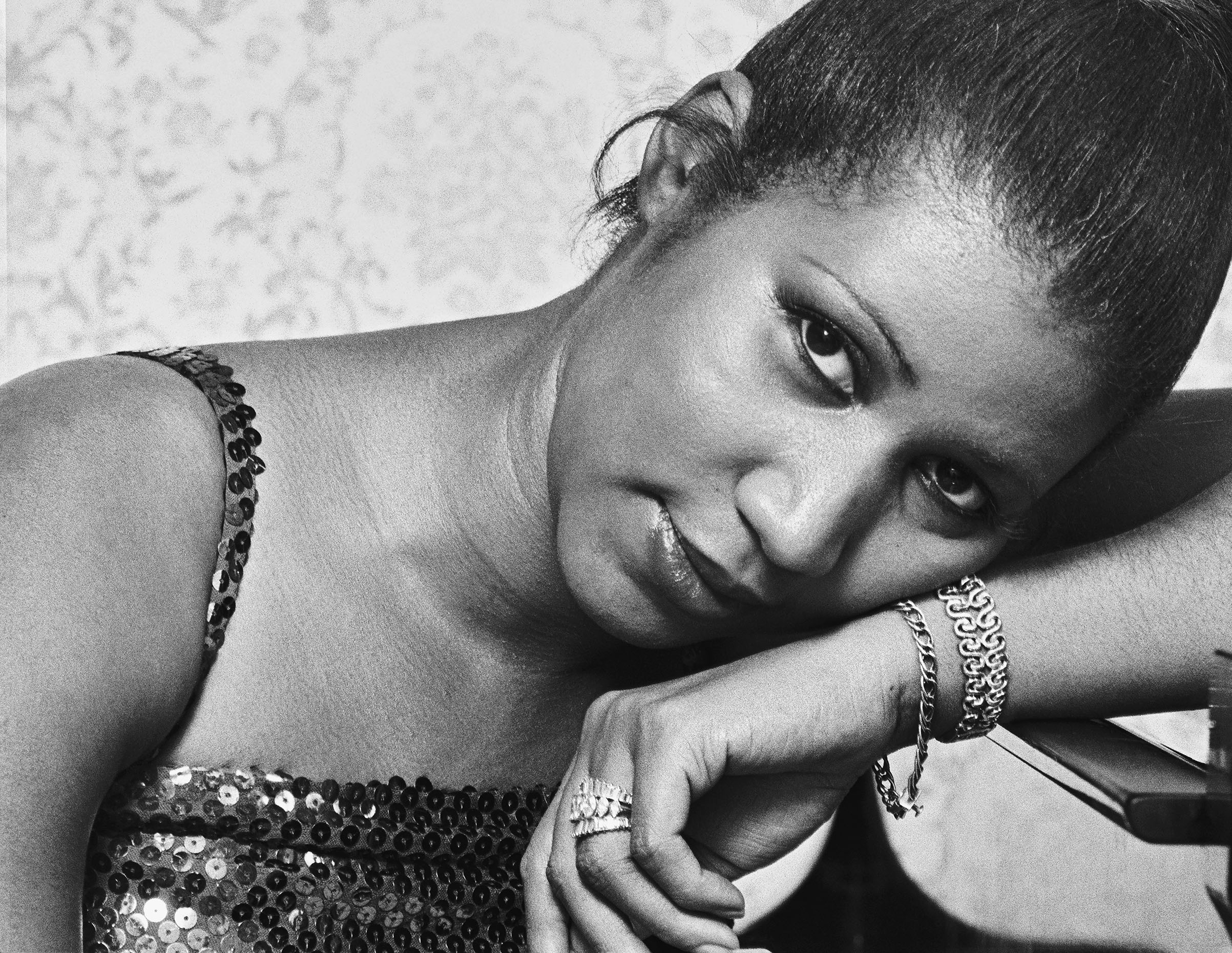Aretha Franklin, the legendary Queen of Soul, had a life filled with both triumphs and heartaches. One of the most poignant moments in her early years was the loss of her mother, Barbara Siggers Franklin. Today, we're diving deep into the story of how Aretha Franklin's mother passed away, exploring the impact it had on the young Aretha and her music career. Get ready for an emotional journey as we uncover the truth behind this tragic event.
When you think about Aretha Franklin, you immediately picture a powerhouse with a voice that could move mountains. But behind that incredible talent was a young girl who faced more challenges than most of us can imagine. The passing of Aretha's mother left an indelible mark on her life, shaping the woman she became. In this article, we'll explore the circumstances surrounding Barbara Franklin's death and its lasting influence on Aretha's legacy.
While Aretha Franklin's music has touched millions, the story of her family life remains less well-known. Her mother's death was a pivotal moment that shaped her early years, influencing her approach to life and music. As we uncover the details, you'll see how Aretha's resilience and strength were forged in the face of adversity. So, let's dive into the heart of this story and learn more about the woman who raised one of the greatest voices in music history.
- Terra Yoga A Journey To Inner Peace And Wellness
- Did Jackie Chan Retire Unveiling The Truth Behind The Legends Career Status
Biography of Aretha Franklin's Mother: Who Was Barbara Siggers Franklin?
Early Life and Marriage
Barbara Siggers Franklin was born in Memphis, Tennessee, where she grew up in a musical household. Her love for gospel music led her to become a talented pianist and vocalist, setting the stage for her future marriage to Rev. C.L. Franklin, a renowned Baptist minister. Their union in the early 1940s brought them to Detroit, Michigan, where they started a family that would include Aretha, their second child.
Barbara's role as a mother and homemaker was central to her life, but her passion for music never faded. She was known for her beautiful voice and often performed at church services alongside her husband. Her influence on young Aretha was profound, as she introduced her daughter to the world of gospel music at an early age.
A Table of Barbara Siggers Franklin's Personal Details
Here's a quick look at some key details about Aretha Franklin's mother:
- Clooney Twins Photos 2024 A Closer Look At The Cutest Celeb Twins Around
- How To Volunteer For The Macys Thanksgiving Day Parade Your Ultimate Guide
| Full Name | Barbara Siggers Franklin |
|---|---|
| Birthplace | Memphis, Tennessee |
| Profession | Gospel Musician and Homemaker |
| Spouse | Rev. C.L. Franklin |
| Children | Four, including Aretha Franklin |
The Tragic Event: How Did Aretha Franklin's Mother Die?
Now, let's get to the heart of the matter. How exactly did Aretha Franklin's mother pass away? Barbara Siggers Franklin succumbed to a heart attack in 1952, leaving behind a family that was just beginning to find its footing in Detroit. At the time, Aretha was only 10 years old, and her mother's death had a profound impact on her formative years.
The heart attack was sudden and unexpected, leaving the Franklin family in shock. Rev. C.L. Franklin, a prominent figure in the Detroit Baptist community, struggled to balance his pastoral duties with raising four children on his own. Aretha, who was already showing signs of musical talent, found solace in singing and playing the piano, a tradition her mother had instilled in her.
Impact on Aretha Franklin's Life
Barbara's death left a void in Aretha's life that she spent years trying to fill. Her mother's absence meant that Aretha had to grow up quickly, taking on responsibilities beyond her years. This early loss contributed to her deep emotional connection to music, which became a form of therapy and expression for her.
Many music historians believe that Aretha's soulful performances were influenced by the pain of losing her mother at such a young age. Her ability to convey raw emotion through her voice was a testament to the struggles she faced and overcame in her youth.
Aretha Franklin's Early Years: Growing Up Without a Mother
After her mother's death, Aretha's childhood took on a different tone. She grew closer to her siblings and relied heavily on her father for guidance. Rev. C.L. Franklin, despite his demanding schedule, made sure his children were well-cared for, often bringing them along to his speaking engagements and gospel concerts.
Aretha's early years were marked by a mix of hardship and opportunity. While she missed her mother dearly, she found a sense of purpose in music. By the age of 14, she had already begun performing professionally, showcasing the talent that would later make her a household name.
Key Influences in Aretha's Life After Her Mother's Passing
- Rev. C.L. Franklin: Aretha's father became her primary role model and mentor, encouraging her to pursue her musical dreams.
- Gospel Music: The genre her mother loved became Aretha's passion, shaping her vocal style and artistry.
- Extended Family: Aretha's aunts and other relatives played a significant role in her upbringing, providing emotional support during difficult times.
Barbara Franklin's Legacy: Her Influence on Aretha's Music
Barbara Siggers Franklin's influence on Aretha's music cannot be overstated. Her early exposure to gospel music laid the foundation for Aretha's distinctive sound, which blended spiritual depth with soulful intensity. Songs like "Respect" and "Chain of Fools" carried echoes of her mother's teachings, emphasizing themes of empowerment and resilience.
Aretha often credited her mother with instilling in her a love for music that transcended genres. Even as she transitioned from gospel to R&B and soul, the essence of Barbara's influence remained a constant thread throughout her career.
Aretha's Tribute to Her Mother Through Music
Throughout her career, Aretha paid tribute to her mother in various ways. One notable example is her 1972 album "Amazing Grace," which features gospel classics that her mother had introduced her to. The album, recorded live at the New Temple Missionary Baptist Church in Los Angeles, became one of the best-selling gospel albums of all time.
In interviews, Aretha spoke fondly of her mother's musical legacy, acknowledging the debt she owed to Barbara for nurturing her talent from a young age. Her performances often carried an emotional depth that spoke to her personal experiences of loss and triumph.
Exploring the Emotional Impact of Loss on Aretha's Career
The loss of her mother at such a young age had a profound impact on Aretha's career trajectory. It instilled in her a sense of urgency and determination to succeed, even in the face of adversity. Her ability to channel her emotions into her music was a testament to her resilience and strength.
Many of Aretha's most iconic performances were rooted in her personal experiences, including the pain of losing her mother. Her music became a vehicle for expressing universal themes of love, loss, and redemption, resonating with audiences across the globe.
How Aretha's Personal Struggles Shaped Her Music
- Emotional Depth: Aretha's music often carried an emotional weight that spoke to the heartbreak and healing she experienced in her own life.
- Resilience: Her ability to overcome personal challenges inspired countless fans, proving that music could be a powerful tool for healing and empowerment.
- Legacy: By honoring her mother's memory through her music, Aretha ensured that Barbara's influence would continue to inspire future generations.
Historical Context: The Role of Women in Gospel Music During the 1950s
To fully understand the impact of Barbara Siggers Franklin's death, it's important to consider the historical context of gospel music during the 1950s. At that time, gospel music was predominantly a male-dominated field, with women often relegated to supporting roles. Barbara's presence as a talented musician in her own right was a rare and significant achievement.
Her death left a void not only in the Franklin household but also in the gospel music community, where she was respected for her contributions. Aretha, who inherited her mother's musical gifts, went on to break barriers in the music industry, paving the way for future generations of female artists.
Barbara's Influence on Gospel Music
Barbara Siggers Franklin's contributions to gospel music were more than just personal; they were part of a larger movement that elevated the role of women in the genre. Her legacy lived on through Aretha, who carried forward the torch of gospel music into the mainstream, achieving unprecedented success.
Aretha Franklin's Achievements: Building on Her Mother's Legacy
Aretha Franklin's career achievements are a testament to the enduring legacy of her mother. From her early days as a gospel singer to her rise as the Queen of Soul, Aretha consistently pushed boundaries and broke barriers in the music industry. Her ability to convey deep emotion through her voice was a direct result of the lessons she learned from her mother.
Throughout her career, Aretha received numerous accolades, including 18 Grammy Awards and induction into the Rock and Roll Hall of Fame. Her influence extended beyond music, as she became a symbol of empowerment and resilience for women and minorities around the world.
Key Milestones in Aretha Franklin's Career
- 1960s: Signed with Atlantic Records, releasing hits like "Respect" and "Think."
- 1970s: Released groundbreaking albums such as "Amazing Grace" and "Young, Gifted and Black."
- 1980s: Collaborated with contemporary artists, expanding her reach to new audiences.
- 2000s: Continued to perform and inspire, cementing her place as a music legend.
Conclusion: Honoring the Memory of Barbara Siggers Franklin
In conclusion, the story of how Aretha Franklin's mother died is a poignant reminder of the challenges and triumphs that shaped one of music's greatest legends. Barbara Siggers Franklin's untimely passing left an indelible mark on her daughter's life, influencing her music and career in profound ways. Through her remarkable talent and resilience, Aretha honored her mother's legacy, becoming a beacon of hope and inspiration for millions.
We invite you to share your thoughts and reflections on this article in the comments below. If you enjoyed this piece, be sure to explore more stories about legendary musicians and their inspiring journeys. Together, let's celebrate the lives and legacies of those who have enriched our world through their art.
Table of Contents
- Indiegogo Corey Feldman The Untold Story Behind The Campaign
- Paris Hiltons Iconic Skirt Moments A Style Journey Through The Years
:max_bytes(150000):strip_icc():focal(731x0:733x2)/aretha-franklin-1-653089424bb9487cbadac25a71275533.jpg)

